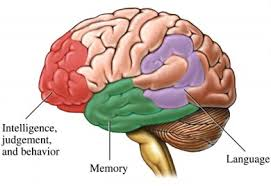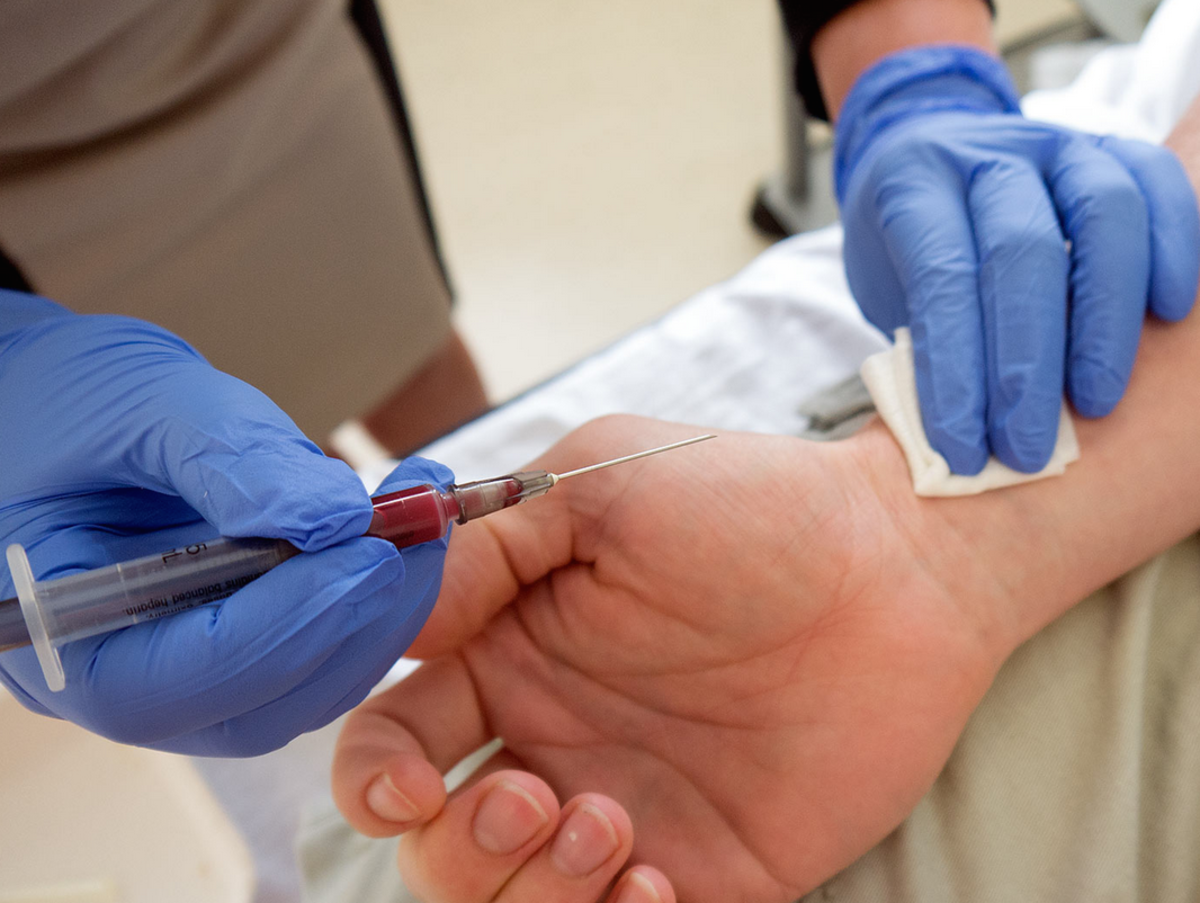7 Ways to Prevent Dementia, Alzheimer's Disease and Type 3 Diabetes
Avoiding Dementia or Alzheimer's Disease



Preventing Dementia, Alzheimer's Disease and Type 3 Diabetes
Dementia and Alzheimer's are used interchangeably. Dementia (previously called senility) is the symptom and it happens to some degree with aging. Alzheimer's disease is the cause of the symptom (dementia).
Type 3 diabetes is what some are calling Alzheimer's disease. One theory is that too much insulin in the brain is causing Alzheimer's disease. The other theory is that type 3 diabetes is due to improper handling of insulin in the brain.
This U.S. National Library of Medicine article is called Alzheimer's Disease Is Type 3 Diabetes–Evidence Reviewed.It says:
We conclude that the term “type 3 diabetes” accurately reflects the fact that AD represents a form of diabetes that selectively involves the brain and has molecular and biochemical features that overlap with both type 1 diabetes mellitus and T2DM [type 2 diabetes mellitus].
Altogether, the results from these studies provide strong evidence in support of the hypothesis that AD represents a form of diabetes mellitus that selectively afflicts the brain.
Keywords: Alzheimer's disease, central nervous system, diabetes, insulin gene expression, insulin signaling
This was written May 28, 2012. Diabetes is now being called a cardiovascular disease since it has a lot to do with circulation, heart attacks and strokes.
1. Coffee
Coffee has been getting a lot of attention for the health benefits associated with it. One benefit of drinking coffee is preventing type 2 diabetes. Now they are saying that coffee prevents dementia and Alzheimer's disease. Who is 'they'? Webmd.com! Moderate Coffee Drinking Reduces Risk of Dementia and Alzheimer’s by 65% in Study says:
The study showed that coffee drinkers at midlife had a lower risk for dementia or Alzheimer's later in life than people who drank little or no coffee at midlife. The lowest risk was found among moderate coffee drinkers. Moderate coffee drinkers had a 65%-70% decreased risk of dementia and a 62%-64% decreased risk of Alzheimer's compared with low coffee drinkers, the researchers write.
Also see 17 Health Benefits of Drinking Coffee with many great sources like U.S. National Library of Medicine, New York Times and Cancer Treatment Centers of America saying that coffee prevents breast cancer.
2. Exercise
Physical exercise helps circulation and helps to prevent diabetes (type 2). Type 1 diabetes is something that people get as a child and more vitamin D in mother and baby has shown great promise in preventing this. So otherwise we are talking about type 2 diabetes. Exercise is necessary to all around health also. I have articles on yoga like the Benefits of Hatha Yoga (postures or poses) and 23 Celebrities That Do Yoga (includes secretary of state, Hillary Clinton).
So yoga as an exercise can help greatly. See link under picture above. It has other tips like not smoking and avoiding excessive alcohol. But smoking can keep you from getting dementia by killing you at a younger age. My mother and uncle smoked and had no dementia when they died. My mother died of a stroke at age 46 and my uncle died of a heart attack at age 54. My other uncle did not smoke and died at age 70 due to cancer. It explains how yoga reduces stress that causes all diseases including dementia that is not a disease but a symptom of a disease. Yoga has been shown to reduce blood levels of the stress hormone cortisol that wreaks havoc in the brain.
3. Vitamin D
Enough vitamin D is necessary to help circulation and the immune system and to prevent heart attacks, strokes, cancer, diabetes and more. I have an article on the Benefits of Vitamin D. So webmd.com says that vitamin D and E (both oil soluble vitamins) prevent dementia. Vitamin E helps with circulation. Also see How Much Vitamin D Should You Take Daily. Also the importance of vitamin D to mental health is clearly shown in: Are Autism and Cancer Caused by a Vitamin D Deficiency.
There is no big problem with people not getting enough vitamin E since it is in nuts (nuts like walnuts are great for brain health) and vegetable oils (use olive oil and flaxseed oil and try to avoid the others). But experts say that most Americans are not getting enough vitamin D that is actually a steroid hormone that you get from sunlight. Studies Show Blood Levels of Vitamins D and E Are Linked to Risk of Cognitive Decline (from webmd.com July 12, 2010) says:
One study suggests that low blood levels of vitamin D may increase risk for cognitive decline, while another study shows that consuming a diet rich in the antioxidant powerhouse vitamin E may help reduce the risk for dementia, including Alzheimer's disease.
Vitamin D is often called the sunshine vitamin because our bodies produce it in response to sunlight. Vitamin D has become the "it" vitamin in recent years, as growing research links its deficiency to a host of health problems including heart disease, certain cancers, osteoporosis, diabetes, schizophrenia, and some autoimmune disorders.
Anywhere from 40% to 100% of older adults in the U.S. and Europe may be vitamin D-deficient, according to information cited in the new study.
4. Green Tea
There is no reason to be drinking water when you can drink green tea. Drinking water is uncivilized. By definition water is a colorless, tasteless and odorless liquid. You can sweeten the green tea with stevia and get even more health benefits. Stevia helps with blood sugar regulation helping you to avoid type 2 and maybe type 3 diabetes. Webmd.com has a January 6, 2011 article called Green Tea May Help Prevent Alzheimer’s Disease. The subtitle is: Study Shows Green Tea May Also Slow Growth of Cancer Cells. I drink a tea from Whole Foods markets that contains organic green tea, organic Yerba Mate Tea and organic peppermint at a cost of $3.99 for 40 tea bags.
5. Turmeric Contains the Phytochemical Curcumin
This does not come from webmd.com. This comes from NCBI, NLM, NIH (ncbi.nlm.nih.gov) the National Center for Biotechnology Information, National Library of Medicine, National Institutes of Health. The effect of curcumin (turmeric) on Alzheimer's disease: An overview says:
This paper discusses the effects of curcumin on patients with Alzheimer's disease (AD). Curcumin (Turmeric), an ancient Indian herb used in curry powder, has been extensively studied in modern medicine and Indian systems of medicine for the treatment of various medical conditions, including cystic fibrosis, haemorrhoids [English spelling of hemorrhoids?], gastric ulcer, colon cancer, breast cancer, atherosclerosis, liver diseases and arthritis.
Conclusion: Based on the main findings detailed above, curcumin will lead to a promising treatment for Alzheimer's disease. The clinically studied chemical properties of curcumin and its various effects on AD shows the possibility to do further research and develop better drugs based on curcumin for treating AD.
6. Omega-3 Fatty Acids
This is a necessary nutrient that many may not be getting enough of. It is needed to help lubricate the brain, the joints and blood vessels. Webmd.com has an April 18, 2007 article called Omega-3 Fatty Acid Slows Alzheimer’s. The subtitle is DHA-Rich Diet May Help Prevent Alzheimer’s Disease . It says:
DHA is a type of omega-3 fatty acid found in fish, organ meats, eggs, micro-algae, and supplements.
Vegans and vegetarians can eat the micro-algae. It is better known in stores as spirulina and Lake Klammoth blue-green algae. The fish get their omega-3 fatty acids from eating algae. These supplements have many health benefits especially with mental functioning. There is an article Blue-Green Algae Benefits. You can get omega-3 fatty acids from vegetable sources like chia seeds or flax seeds. Then a healthy body can change the omega-3 fatty acids into DHA and EPA.
7. Mental Exercise, Work or Fun
There is a saying about exercise and muscles-- Use it or lose it. The same applies to using your brain. There are mental games like sudoko that are relaxing but work your brain. Also there is reading, writing and learning new things that exercise the brain. There is an herb, ginkgo biloba, that is very good for circulation. Many studies showed that it helped to prevent Alzheimer's so the federal government did a study on it with 3,000 people but found that it did not help dementia according to the November 19, 2008 issue of The Journal of the American Medical Association. It said that this herbal supplement showed no evidence of reducing the overall incidence of either Alzheimer's disease or dementia. Although it still may be very good for circulation.
Also note that many of the above are important to help you to live longer and are anti-aging like exercise, vitamin D (the sunshine vitamin or hormone), green tea, curcumin in turmeric and omega-3 fatty acids. Many vegetarians, vegans and meat-eaters can be low on vitamin B-12 that is needed for the brain, but a supplement of it is easy to take since you can store it for a few years and you only need 6/1000th of a milligram a day (6 milligrams of it every 1,000 days). Many do take more than the RDA of 6 micrograms a day. The micro-algae mentioned above is supposed to be a good source of it.
8th Way Added October 22, 2013 Getting Plenty of Sleep
New study shows that while you are sleeping the brain cleanses itself of toxic waste including dementia causing chemicals. It says:
“Sleep puts the brain in another state where we clean out all the byproducts of activity during the daytime,” said study author and University of Rochester neurosurgeon Maiken Nedergaard. Those byproducts include beta-amyloid protein, clumps of which form plaques found in the brains of Alzheimer’s patients.
Here is another article on this in case the above one gets lost called Sleep: The Ultimate Brainwasher. It says:
The new study, by Maiken Nedergaard and colleagues at the University of Rochester in New York, provides what Charles Czeisler, a sleep researcher at Harvard Medical School in Boston, calls the “first direct experimental evidence at the molecular level” for what could be sleep’s basic purpose: It clears the brain of toxic metabolic byproducts.
See this January 19, 2014 article called 9 Ways to Sleep Much Better.
The first article on this is by the Washington Post. They once had an article about a super genius, Gregory Smith, who's IQ was too high to be measured. He became a vegetarian at age 2 and convinced his family to become vegetarian. The article was up for a couple of years and then taken down. Maybe the meat industry did not like it. They did sue Oprah Winfrey for saying negative things about meat.









